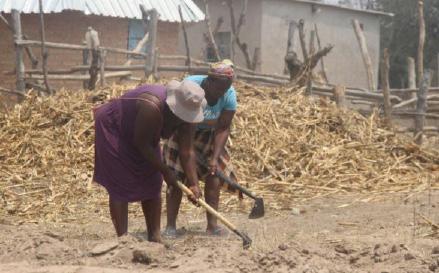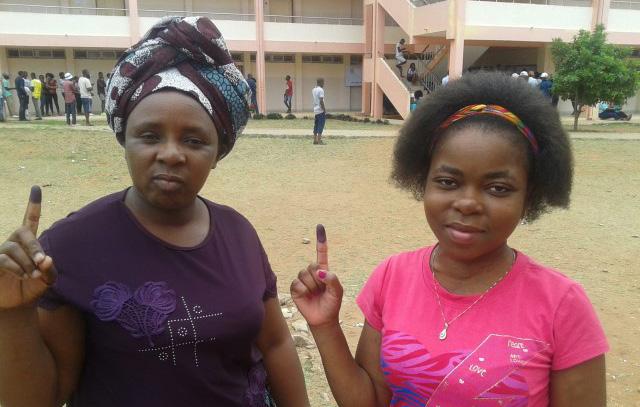
6 minute read
Ignorance And Tolerance
The causes and the dangers of intellectual and moral ignorance inflame intolerance in the political and social sphere in Zimbabwe. The ignorance is nurtured by the false notion that democracy means that, ‘my ignorance is just as good as your knowledge’ (David C. De Witt, Ignorance is not bliss: The dangerous politics of antiintellectualism, January 16, 2020). The danger of intellectual and moral ignorance is that some political and societal leaders have become, borrowing DeWitt’s words, a kind of ‘folk heroes’ for our people, who believe everything they say despite their staggering record of lying thousands upon thousands of times about both the most ridiculous and the most important types of things. This is the consequence of a society that allows facts to become subjective. Freire, P. (Pedagogy of the oppressed, 1970) notes that people who present themselves as defenders of freedom give their doubts and misgivings an air of profound sobriety as befitting custodians of freedom. Yet by so doing they threaten freedom itself. Guerrero (2007, p.71) argues that moral ignorance can never be excused because the moral truth is always accessible. Seeing wrong things happening in society and keeping quiet is inexcusable. The Pastoral Letter of the Zimbabwe Catholic Bishops’ Conference (ZCBC) of May 2001 points out that, “… in a society such as ours, which is multi-cultural and multi-racial, we will always differ in opinions, and therefore we call upon every citizen to exercise a very high degree of tolerance. The lack of this tolerance is clearly evidenced by the violence that continues to grip our country…We have witnessed with sadness the loss of human life and the destruction of property due to differences in political views and opinions.” It is unfortunate that intolerance continues to thrive in our country to this day. Anyone who presents different views/ideas is easily perceived and labelled as unpatriotic, a dissident, a sell-out, a rebel or even a terrorist. Both the ruling party and opposition exhibit intolerance within their ranks. In his speech to a group from the Simon Wiesenthal Center in Rome in October 2013, Pope Francis said: “Whenever any minority is persecuted and marginalised because of its religious convictions or ethnic identity, (political affiliation) the wellbeing of society as a whole is endangered and each one of us must feel affected… let us combine our efforts in promoting a culture of encounter, respect, understanding and mutual forgiveness”. Pope Francis suggested that the most effective antidote to every form of violence, intellectual and moral ignorance which inflame intolerance in our societies today is holistic education, which develops the awakening of not only the mind but of the heart and the soul as well. A holistic education awakens

Advertisement
Theresa Sanyatwe
self-consciousness as well as respect for others and oneself. Differences should be seen as a botanic garden with multiple plant varieties which give different fragrances and yet all trees, despite their differences in shape and size, still coexist in harmony and peace with one another. Zimbabwe should draw some lessons from the harmony of various species in nature. In the face of food insecurity, it is pathetic to notice that there are still politicians who play intolerant partisan politics in the distribution of food aid that has been bought either by tax payers’ money or donated by friendly countries or local well-wishers. Distribution of food aid on the basis of party affiliation is a clear instance of intolerance and demonstration of moral bankruptcy. M. Chingono’s research on the Politics of food aid distribution at grassroots in Zimbabwe (2019) shows that the selection of food aid recipients is not always based on the “poorest and most vulnerable” principle as espoused by the donors but it is oftentimes determined by the village or area politics of kinship, alliances and power. The politics of who should get the aid, when and how can be solved by
offering a long-term solution which can improve the livelihood of Zimbabweans. Let us hope that the government sponsored climate – proof farming known as Pfumvudza will be executed properly and yield the desired results. This programme should be complemented by others such as skilled gardening, poultry, animal husbandry, planning, budgeting, etc., in order to help the poor to become self-reliant. There is doubt that the commencement of the chaotic (jambanja) land reform programme together with intermittent droughts contributed substantially to a decline in food production and security in Zimbabwe. The deterioration in human rights record, increasing repression and violence on the population represented by the AIPPA and other laws, extrajudicial killings and incarcerations also led to the imposition of sanctions by the United States of America and European countries on our nation. Even when we distanced ourselves from the Western countries and looked East, investment in agriculture did not yield positive results. If we choose tolerance, then Zimbabwe can cease the blame game, become inclusive in approach, make organised and productive use farm land, as well as sincerely heal the memories of the Gukurahundi massacres. Intellectual prowess, tolerance, and moral consciousness are the wings and tail on which we can fly high. We need to fix the language and exercise of our politics. According to the ZCBC Statement on Land Reform of 8th December 1997 (b) land is put forward as a limited resource. It cannot be produced or multiplied. It must be shared in such a way that all citizens of the country benefit sufficiently…whoever owns the land must know that he/she has an obligation to the nation as a whole to use the land properly…if land is used or rather misused in a way incompatible with the common good, the state may put it to better use by redistribution (cf. Vatican Council II, The Church in the Modern World, n.24) Pope John Paul II in Work and Man pointed out that the hierarchy of values and the profound meaning of work itself require that capital should be at the service of labour and not labour at the service of capital (ZCBC Pastoral letter on Statement on Land Reform 1997). The first President of South Africa, Nelson Mandela, once said life is not the mere fact that we have lived; it is the difference we make to the lives of others that determines the significance of the life we lead. If we live with intellectual and moral

consciousness the spirit of sabotaging one another can be shunned. Notions such as ‘kudira jecha musadza (pouring sand in the dish) have been expressed to illustrate the polarization of the Zimbabwe political space which becomes the breeding ground of intolerance and various expressions of moral depravity. The poor and the vulnerable can testify that it is they who struggle to chew sadza full of sand. If the post-apartheid South African managed to have a Truth and Reconciliation Commission which bore some positive results, then Zimbabwe, which once went for the Lancaster House Conference, which led to the cessation of hostilities and paved the way for independence in 1980, can still find a way out of the endemic intolerance. In conclusion, during his visit to Mozambique on 6th of September 2019, Pope France said: “We cannot think of the future and build a nation” with violence, intolerance and hatred.” If a house is divided against itself, that house cannot stand (Mark 3:25). There is no bright future with intolerance. We all want that elusive dream of “peace, equality, stability, inclusive democracy and shared economic prosperity”[A.G.O. Mutambara, In Search of the Elusive Zimbabwean Dream: An










